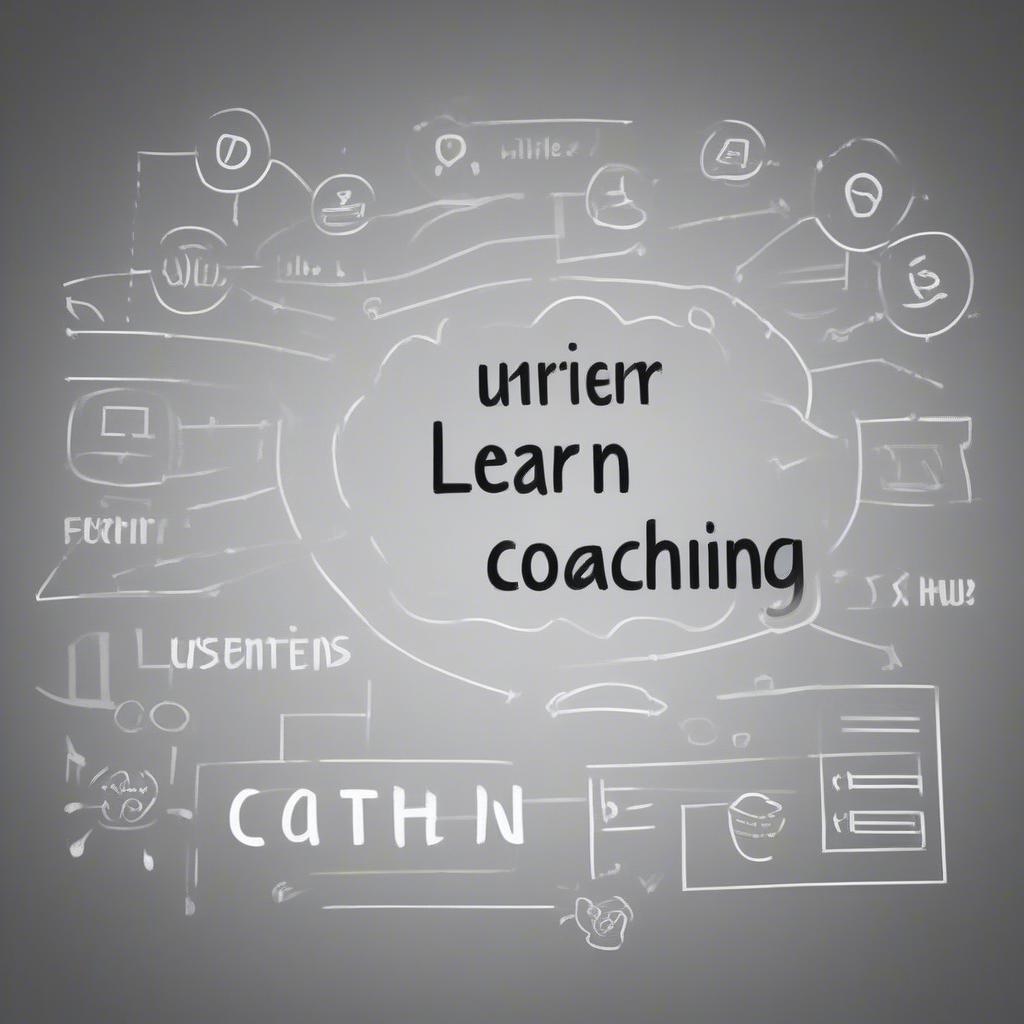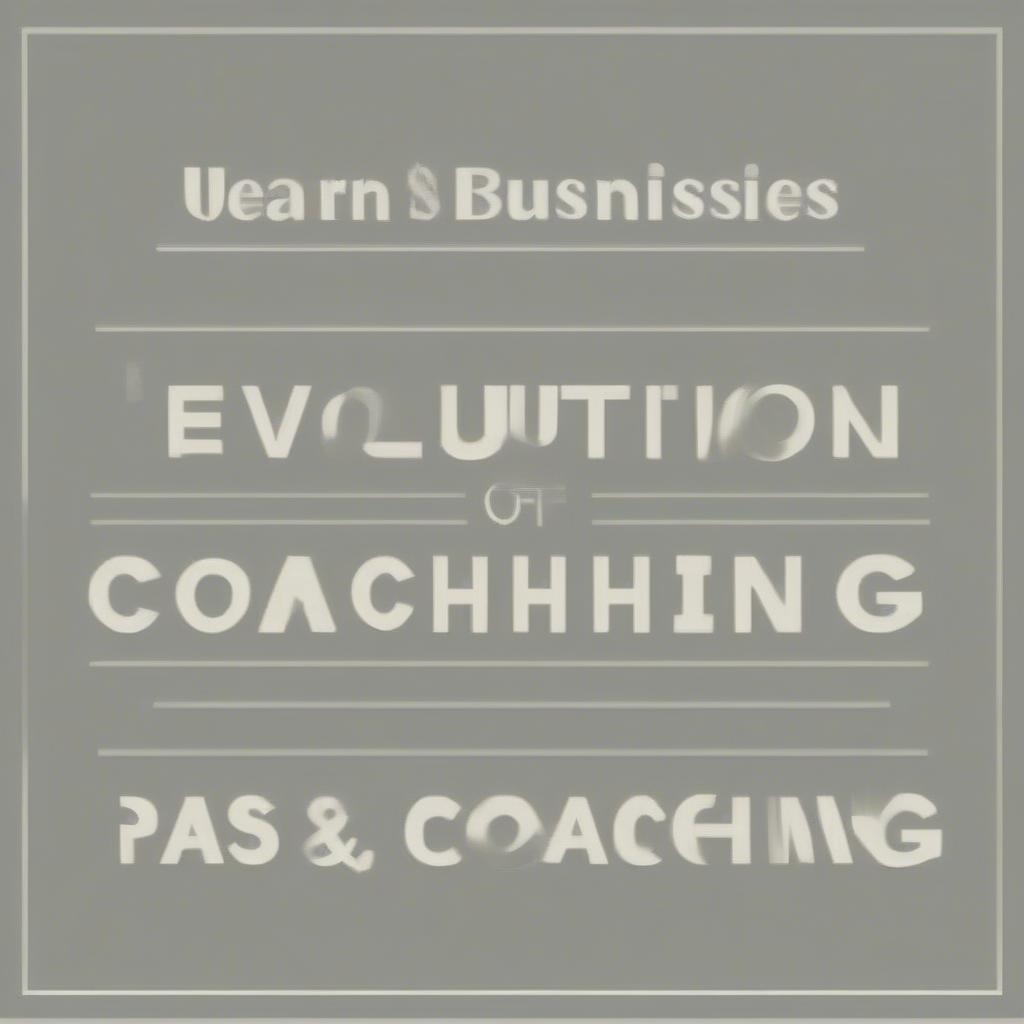
Okay, you’re a coach. That’s fantastic! You’re in the business of transforming lives, helping people reach their potential, and making a real difference. But here’s the thing: the coaching world is booming. It’s crowded. To stand out and attract the clients you deserve, you need more than just passion and expertise. You need a rock-solid, unforgettable value proposition. This isn’t just a fancy business term; it’s the heart and soul of your coaching business. It’s what makes potential clients choose you over the hundreds of other coaches out there. This article will guide you through creating a compelling, unique value proposition, ensuring your business thrives.
What Exactly is a Value Proposition for Coaching?
Let’s break down this term. A value proposition is simply the promise of value you offer to your clients. It’s what they get from choosing to work with you. It answers a crucial question in their minds: “Why should I choose you?” It’s not just what you do, but why your specific approach, experience, and style are the best choice for them. It’s the core of your coaching differentiation.
A strong value proposition isn’t a generic statement like "I help people reach their goals." That’s broad and frankly, boring. It’s about digging deeper and uncovering what makes you truly different. Think of it as your unique selling point, but much more profound. It’s what connects with potential clients on an emotional level, making them say, "Yes! That’s exactly what I need." It’s the key to making your coaching USP clear.
Key Elements of a Powerful Value Proposition
Before we dive deeper, let’s look at the core ingredients that make a value proposition pop:
- Clarity: It should be easy to understand, free from jargon, and instantly resonate with your ideal client.
- Specificity: Avoid vague language. Use concrete terms that highlight the tangible results your clients can expect.
- Uniqueness: What sets you apart from other coaches? What’s your special sauce? This is where your unique expertise shines.
- Relevance: Is it something your ideal client actually wants and needs? Does it solve a specific problem they’re experiencing?
- Emotional Connection: A great value proposition speaks to the underlying feelings and aspirations of your potential clients.
Why is a Unique Value Proposition Crucial for Your Coaching Business?
Why bother crafting a specific coaching USP? Can’t you just rely on being a great coach? Well, maybe… but you’d be leaving money and success on the table. Here’s why a unique value proposition is non-negotiable:
- Attract the Right Clients: A clear value proposition helps you attract clients who are a perfect fit for your coaching style and expertise. This creates a more fulfilling coaching experience for both you and your clients.
- Stand Out in a Crowded Market: With so many coaches to choose from, you need something that makes you memorable and different. Your value proposition is your megaphone in the marketplace.
- Justify Your Pricing: A strong value proposition allows you to charge what you’re worth, reflecting the unique value and transformation you offer. It justifies your fees in the eyes of your clients.
- Build Brand Loyalty: When clients understand the unique value they receive from working with you, they’re more likely to become repeat clients and advocates for your coaching business.
- Targeted Marketing Efforts: With a clear value proposition, you can create marketing campaigns that speak directly to the needs and desires of your target audience. This improves your marketing efficiency.
- Clear Business Direction: Your value proposition serves as a compass for your business, guiding your decisions about what services you offer, who you market to, and how you position yourself.
Finding Your Unique Angle: The Process of Differentiation in Coaching
So, how do you develop a coaching differentiation strategy that truly sets you apart? It starts with self-reflection and a deep understanding of your ideal client. Here’s a step-by-step guide:
Step 1: Define Your Ideal Client
Before crafting your value proposition, you need to know who you’re talking to. Think about:
- Demographics: Age, gender, location, income, education level.
- Psychographics: Values, beliefs, aspirations, fears, pain points.
- Specific Challenges: What are they struggling with? What problems do they want to solve?
- Desired Outcomes: What are they hoping to achieve through coaching? What transformation are they seeking?
Example: Let’s say you specialize in career coaching. Your ideal client might be a female, mid-career professional, feeling stuck and unfulfilled in her current role, and longing for more meaningful work. She’s likely feeling overwhelmed, maybe a little lost, and unsure how to make a change.
Step 2: Identify Your Unique Strengths and Expertise
Now it’s time for some serious self-reflection. Consider:
- Your Experience: What unique experiences have you had that have shaped your coaching style?
- Your Training & Certifications: Do you have specialized training that sets you apart?
- Your Personality & Style: Are you empathetic and nurturing? Results-oriented and direct? What’s unique about how you approach coaching?
- Your Passions: What topics get you truly excited? When do you feel most in your element?
- Your Success Stories: What results have you helped your past clients achieve? Can you quantify these results?
- Areas of Specialization: Are you particularly skilled at working with a specific niche (e.g., high-achievers, creatives, entrepreneurs)?
Example: Going back to our career coach, perhaps she spent years in corporate HR before transitioning to coaching. She has a deep understanding of internal corporate dynamics and knows how to position her clients for promotions and advancement. This gives her an edge over coaches who don’t have this HR expertise.
Step 3: Uncover the Intersection
This is where the magic happens. Look at your ideal client’s pain points and aspirations and your unique strengths and expertise. Where do they overlap? This sweet spot is where your value proposition lies.
- What specific problems can you uniquely solve for your ideal client?
- What results can you help them achieve that other coaches can’t?
- What emotions do you evoke in your clients?
Example: Our career coach finds that her ideal client feels overwhelmed by the job-seeking process and confused about navigating internal politics for advancement. Her experience in HR, coupled with her coaching skills, allows her to offer clients a unique advantage: the inside knowledge of how organizations work, and how to position themselves for success.
Step 4: Craft Your Value Proposition Statement
Once you’ve identified that intersection, you’re ready to translate it into a compelling statement. Keep it concise and punchy. Use active, benefit-driven language. Here are a few templates:
- "I help [ideal client] achieve [desired outcome] by [your unique method/approach]."
- "Unlike other coaches, I help [ideal client] [specific problem they face] by leveraging [your unique expertise]."
- "I am the only coach that offers [unique offering] that helps [ideal client] achieve [specific result]."
- "My coaching program is designed to help [ideal client] to [desired outcome], even when [challenge they face] by [unique solution]."
- "If you are a [ideal client] struggling with [specific problem], I will help you to [desired outcome] by using [unique methodology]."
Example: Here’s a value proposition statement for our career coach: “I help ambitious mid-career professionals navigate the complexities of corporate life and unlock their full career potential using my inside knowledge of HR and proven coaching methods.”
Refining and Testing Your Value Proposition
Creating a first draft of your value proposition is a great start, but it’s not the finish line. It’s crucial to refine and test it.
Get Feedback from Ideal Clients
Share your value proposition with individuals who fit your ideal client profile and ask for their honest feedback.
- Does it resonate with them?
- Does it clearly articulate the value you offer?
- Is it compelling enough to make them want to learn more?
Track Your Results
Monitor your business metrics, such as website traffic, lead generation, and client conversions.
- Are people responding to your messaging?
- Is your value proposition attracting the right clients?
- Are you converting leads into paying clients?
Be Open to Adjusting
Don’t be afraid to revise your value proposition based on the feedback you receive and the results you track. The process of crafting a powerful coaching USP is iterative, so you need to remain flexible and adaptable.
Practical Examples of Unique Value Propositions in Coaching
Let’s explore some real-world examples of value propositions in different coaching niches:
- Executive Coach: "I empower high-potential leaders to develop strategic vision, enhance their influence, and accelerate their career trajectory through a combination of data-driven analysis and personalized leadership development strategies." (Focuses on strategic development & data-driven approach)
- Life Coach: "I guide individuals struggling with overwhelm and lack of purpose to rediscover their passion, build confidence, and create a life they truly love by utilizing mindfulness practices and values-based decision-making frameworks." (Focuses on mindful practice and rediscovering purpose)
- Health Coach: "I help busy professionals overcome the barriers to healthy living by creating simple, sustainable, and personalized nutrition and fitness plans that fit their hectic lifestyles, using behaviour change principles and personalized support." (Focuses on practicality & personalized support)
- Relationship Coach: "I help couples transform dysfunctional communication patterns into more fulfilling, compassionate connections, using emotionally focused therapy principles and active listening techniques." (Focuses on communication & emotional therapy principles)
- Business Coach: “I help tech startups navigate hyper-growth, establish a scalable framework and build high-performing teams through my experience of scaling multi-million dollar business and proven frameworks” (Focuses on experience & results)
Each of these examples is specific, benefit-driven, and clearly articulates the unique value each coach brings to the table.
Learn Business and its Support for your Coaching Value Proposition
Creating a unique value proposition is not a one-time task, but a journey that requires continual refinement. That’s where Learn Business can be an invaluable partner. At Learn Business, we understand the complexities of building a thriving coaching business. We offer:
- Tailored Guidance: Our team works with you one-on-one to help you discover your unique strengths and craft a value proposition that resonates with your ideal clients.
- Business Templates: We provide customizable templates for creating your value proposition statement, marketing materials, client onboarding processes, and much more.
- Marketing Support: We help you develop a marketing strategy that highlights your unique value proposition and attracts your target audience through content marketing, social media and SEO guidance.
- Business Planning: We can help you plan your business strategy from vision creation to execution with clear milestones and accountability.
We work with coaches across various niches, and our expert team offers a deep understanding of the coaching industry. With Learn Business, you don’t have to navigate the process alone, we guide you every step of the way. We will help you to refine your coaching USP and solidify your place in the competitive coaching landscape.
Actionable Steps to Create Your Value Proposition
Let’s recap and put this all into a practical, actionable plan:
- Self-Assessment: Take time for deep self-reflection. What are your unique skills, experience, and passions?
- Ideal Client Profile: Define your ideal client. What are their specific problems, aspirations, and pain points?
- Intersection: Identify the overlapping areas between your expertise and your ideal client’s needs.
- Craft your Value Proposition: Using the templates provided, articulate a clear, concise, and benefit-driven statement.
- Test and Refine: Gather feedback from your ideal clients, track your results, and be open to making adjustments.
- Integrate into your Business: Ensure your value proposition is consistently reflected in all your marketing materials, client communication, and online presence.
- Seek Support: Utilize resources like Learn Business for personalized guidance and templates to streamline the process.
- Continually Evaluate: Your business will evolve over time. Periodically review your value proposition to ensure it still resonates with your target audience and reflects your business goals.
Final Thoughts
Crafting a compelling and unique value proposition is not a luxury; it’s a necessity for any coach aiming for success. It’s the foundation upon which you’ll build a thriving and fulfilling coaching business. It takes time, reflection, and a willingness to differentiate yourself. By understanding your ideal client, identifying your unique strengths, and crafting a powerful statement of value, you can stand out from the crowd, attract the right clients, and create the impact you’ve always dreamed of. Remember that your unique coaching USP is the key that unlocks your business’s full potential. So start today, and let the world know what makes your coaching truly extraordinary. And of course, don’t hesitate to lean on the support of Learn Business along the way.



Leave a Reply